What is mental health?
Mental health is about how we think, feel and act. Just like physical health, we all have it and we need to take care of it.
Our mental health is on a spectrum which can range from good to poor:
- With good mental health, we can think positively, feel confident and act calmly.
- With poor mental health, we might find that the way we're thinking, feeling or acting becomes difficult to cope with. We might not enjoy things we used to like doing. We might feel sad or angry for longer than usual. Or we might feel like we can't control how we feel or behave.
Contents
Jump to page information on:
- How can I look after my mental health?
- What are mental health problems?
- What causes mental health problems?
- Do mental health problems run in families?
- What treatments and support are there?
- Where can I access treatment and support?
- Do mental health problems make someone dangerous?
- Can I live well with a mental health problem?
- Can I get better from a mental health problem?
Mental health is on a spectrum – we can be ill and struggling and well and functioning. It constantly changes which can be exhausting, but it's also a reminder that things will change for the better again.
How can I look after my mental health?
Looking after your mental health can help you to feel good. It can also help stop some mental health problems from developing, control the effects they have, and stop them from getting worse.
You can look after your mental health by:
- Taking care of your wellbeing. For tips on how you can do this, see our page on looking after your wellbeing.
- Practising self-care. Self-care means ways of looking after yourself which help your mental health. This includes recognising what does and doesn't make you feel good. It also includes seeing your friends and looking after your physical health. For more ideas to try, visit the Anna Freud website.
- Finding ways to boost your confidence. It's important to find way to make you feel good about yourself. For more information, see our page on confidence and self-esteem.
- Asking for help or support when you need it. To find out about the different types of support available to you, see our pages on finding support and how to talk to your doctor.
What are mental health problems?
A mental health problem is when the way we're thinking, feeling or acting becomes difficult for us to cope with.
We can all feel sad, worried, angry or fed up at times – like nerves before an exam or feeling down when a friend moves away. But if these feelings last a long time, like if you always feel low or can't sleep, it might be a sign that you need more help.
For example, if the way you feel:
- Affects you most days
- Stops you from doing the things you enjoy
- Makes you feel like you can't cope anymore
Other terms you may hear, or prefer to use instead of ‘mental health problem’ include:
- Poor emotional health
- Overwhelmed
- Mental illness
- Mental ill-health
- Emotional difficulties
There are many different types of mental health problems, all with their own names.
Struggling with your mental health is nothing to be ashamed of.
What can cause mental health problems?
Lots of different things can cause or contribute to mental health problems. Sometimes it might be a few things that have built up, like:
- Problems at home, school or in relationships
- Big changes in your life
- Experiencing discrimination
- Pressure from yourself or others to achieve
- Feeling lonely or like no-one understands you
- Bullying or abuse
- Low confidence and self-esteem
- Losing someone close to you
- Stressful things that have happened to you
- Worrying about what's happening in the world, after seeing things in the news
It might not be something on this list, or you might not know what the cause is.
In some cultures, mental health is closely associated with religious or spiritual life. In others, it isn't considered separate from physical health at all. This may give us different understandings of mental health problems and their causes.
[Struggling with] mental health can be a really isolating experience. The best thing you can do is to let people know, let people in and let people help – Eliza, 15
Do mental health problems run in families?
Some research suggests that some mental health problems might run in families. But nobody knows for sure.
If mental health problems do run in families, it may be because of our genes. Or it may be because we learned our ways of thinking, feeling and behaving from where and how we grew up.
There are many people with a mental health problem who don't have any family with the same condition.
What treatment and support is available?
There are lots of different types of treatment and support for mental health problems, like:
- Talking therapies – where you talk through your thoughts, feelings and experiences with a trained professional. For example, counselling or cognitive behavioural therapy (CBT).
- Medication – drugs prescribed by your doctor to help manage your feelings. For more information, visit the YoungMinds website.
- Creative therapies – this can be using music, drawing, painting, dancing, drama, or playing games to express your thoughts and feelings. You do this with a trained therapist in a safe environment. It can also mean doing creative activities to improve your wellbeing and confidence.
- Peer support – local or online groups that meet to discuss their mental health and wellbeing experiences. Some of us find this helpful because our problems might be better understood with other people.
You may need to try a few different things until you find what works for you.
My GP helped me understand what an anxiety disorder is... They eventually referred me to a therapist where I began to understand my own personal experience of mental health in more depth.
Where can I access treatment and support?
You can access treatment and support for your mental health in lots of different places, like:
- School or college
- Work
- Your home or place you live
- Hospital
- Your doctor's surgery
- Local Minds
Do mental health problems make someone dangerous?
Most mental health problems have no link to dangerous or violent behaviour.
Mental health problems are often shown in a negative and unrealistic way on TV, in films and by the media. But things are changing for the better.
You can help challenge myths about mental health problems by sharing reliable information. You can also get involved in campaigning by joining our Youth Voice Network.
Can I live well with a mental health problem?
It's true that mental health problems can affect parts of your life. But there are ways to manage your symptoms:
- Try to spot what makes your mental health worse. You might feel worse when you're going through a stressful time or not sleeping enough. Then you can take steps to change these things.
- Do things you know can help with poor mental health. Think about what makes your mental health feel more stable. For example, meeting up with a friend or playing sport.
By taking steps to look after yourself, you can still lead a happy and fulfilled life with a mental health problem.
Although I sometimes feel upset that my life has been impacted by living with a mental health problem, it has made me who I am.
Can I get better from a mental health problem?
It's possible to get better from a mental health problem, and lots of us do.
Your symptoms might return from time to time. When you've found what support works for you, it's likely that you'll feel more able to manage your symptoms. This support might be a combination of different types of treatments and self-care.
I think there will be ups and downs. But it's really important that you get what works for you, so that you can bring that back and get back on up onto a high again – Maddie, 16
Cognitive behavioural therapy (CBT)
This is a type of talking therapy with a trained therapist. It can help you look at your thinking patterns and behaviour, to help you find new ways of coping.
CBT may be face-to-face, over the phone or over video call.
Counselling
This is a type of talking therapy with a trained counsellor. Counselling can help you:
- talk through a problem or situation that is negatively affecting your mental health
- recognise how it affects you
- work out positive coping strategies or ways to make the situation better.
It may be face-to-face, over the phone or over video call.
Visit our full treatment and support glossaryDiscrimination
Discrimination is when someone treats you differently or unfairly because of:
- Your age
- Your disability
- Your gender
- Your gender identity
- Your sexuality
- Your relationship status
- Your religion or beliefs
- Your race, skin colour or where you were born
- Being pregnant or having a child
In the UK, a law called the Equality Act protects you from discrimination.
The Equality Act says you have a disability if you have a physical or mental health problem that has a substantial, negative, and long-term effect on your day-to-day life.
Visit our full treatment and support glossaryThis information was published in June 2020. We will revise it in 2023.
The quotes on this page are from young people we spoke to while making this information. They've given us their consent to use their quotes in our information. The words, experiences and opinions in the quotes are not related to the young people shown in any of the photographs we use.
References are available on request. If you would like to reproduce any of this information, see our page on permissions and licensing.














